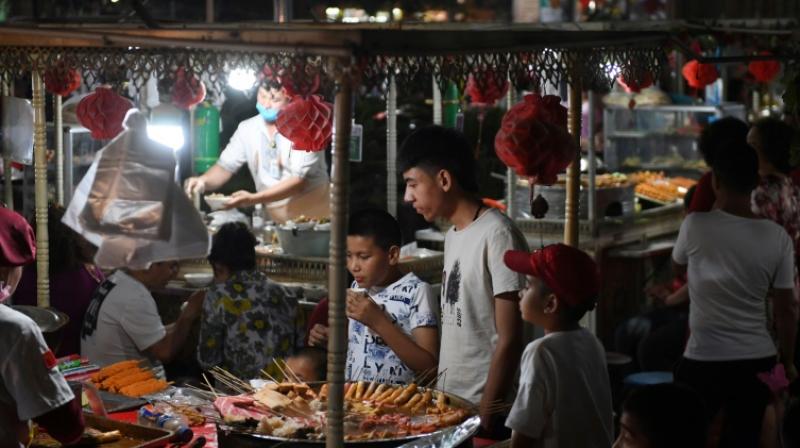China opens its door for tourist visits

Beijing: From the expansive dunes of the Taklamakan Desert to the snow-capped peaks of Tianshan, Chinese authorities are selling troubled Xinjiang as a tourist idyll, welcoming travellers even as they send locals to internment camps.
The government has rounded up an estimated one million Uighurs and other mostly Muslim Turkic-speaking minorities into re-education camps in the tightly-controlled region in China's northwest, but it has also created a parallel universe for visitors, who are only shown a carefully curated version of traditional customs and culture.
In the Old Town of Kashgar, an ancient Silk Road city, smiling food vendors serve mouth-watering lamb skewers, while children play in the streets. "It didn't look to me like – unless you were picked up and put in a camp – that these Uighur communities seemed to be living in some kind of fear," said William Lee, who has taught at universities in China for 10 years and visited the region in June.
"That's just my impression," he added. Xinjiang, a fraught region where flare-ups of interethnic violence have led to unprecedented levels of surveillance, is one of the fastest-growing areas for tourism in China.
Armed police and frequent checkpoints have not dampened the flow of vacationers visiting the region, which in 2018 saw a 40 per cent increase year-on-year of visits – mainly from domestic tourists–outstripping the national average by 25 per cent, according to official figures.
The business has grown steadily over the years mainly because "Xinjiang is very stable", explained Wu Yali, who runs a travel agency in the region. Though tourists are not used to the high level of security at first, "they adapt after a few days," she told AFP.
But travellers are barred from witnessing the most controversial part of Xinjiang's security apparatus: the network of internment camps spread across the vast region. Many of these facilities are outside main tourist hubs and are fenced off with razor-wired walls.
On a six-day trip to the region last month, AFP reporters encountered roadblocks and were turned away by security forces upon nearing some camps. China describes the facilities as "vocational education centres" where Turkic-speaking "trainees" learn Mandarin and job skills.
"The violence that is being inflicted on the bodies of Uighur and other Muslim people...has been rendered invisible," said Rachel Harris, who studies Uighur culture and music at the School of Oriental and African Studies University of London.
"For a tourist who goes and travels around a designated route, it all looks nice," she told AFP. "It's all very quiet and that's because there's a regime of terror being imposed on the local people."
According to Communist Party mouthpiece People's Daily, the regional government offered travellers subsidies worth 500 yuan ($73) each in 2014, after tourism plunged following a deadly knife attack blamed on Xinjiang separatists in south-western China.

